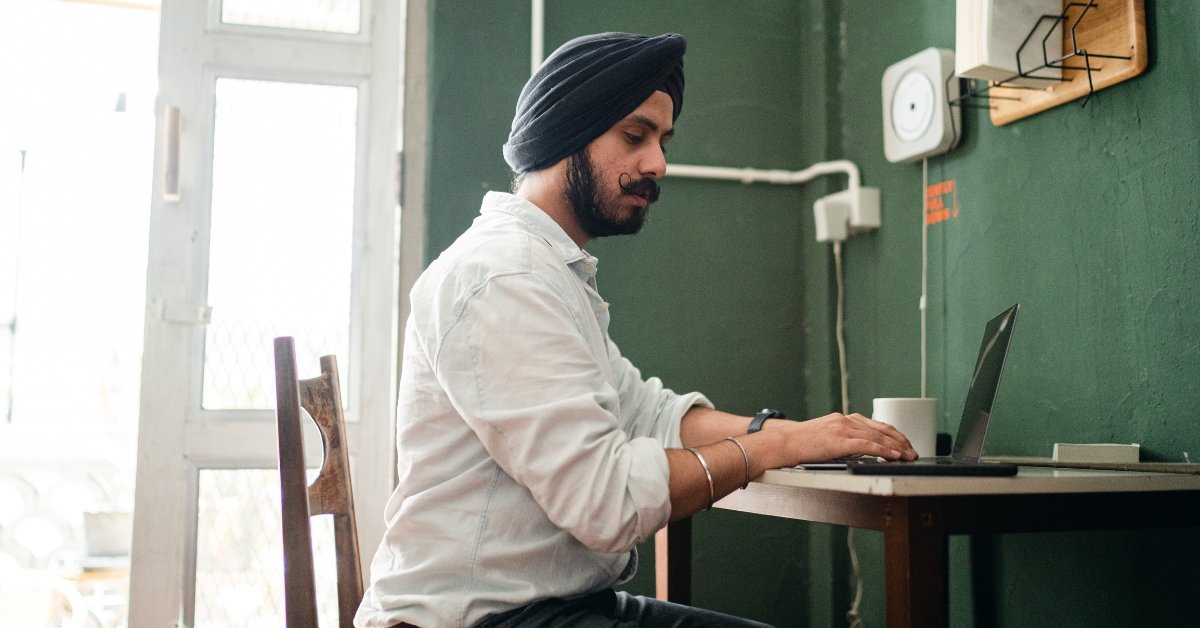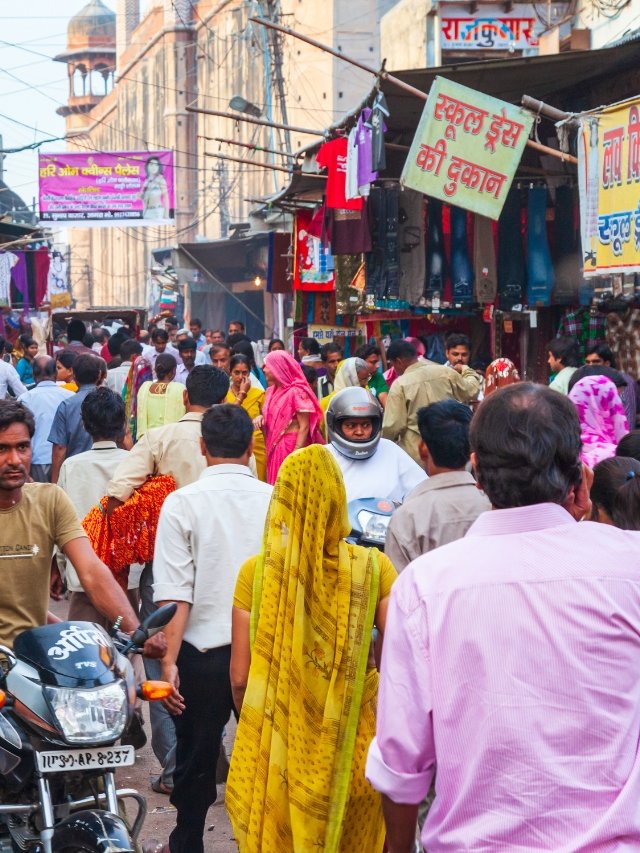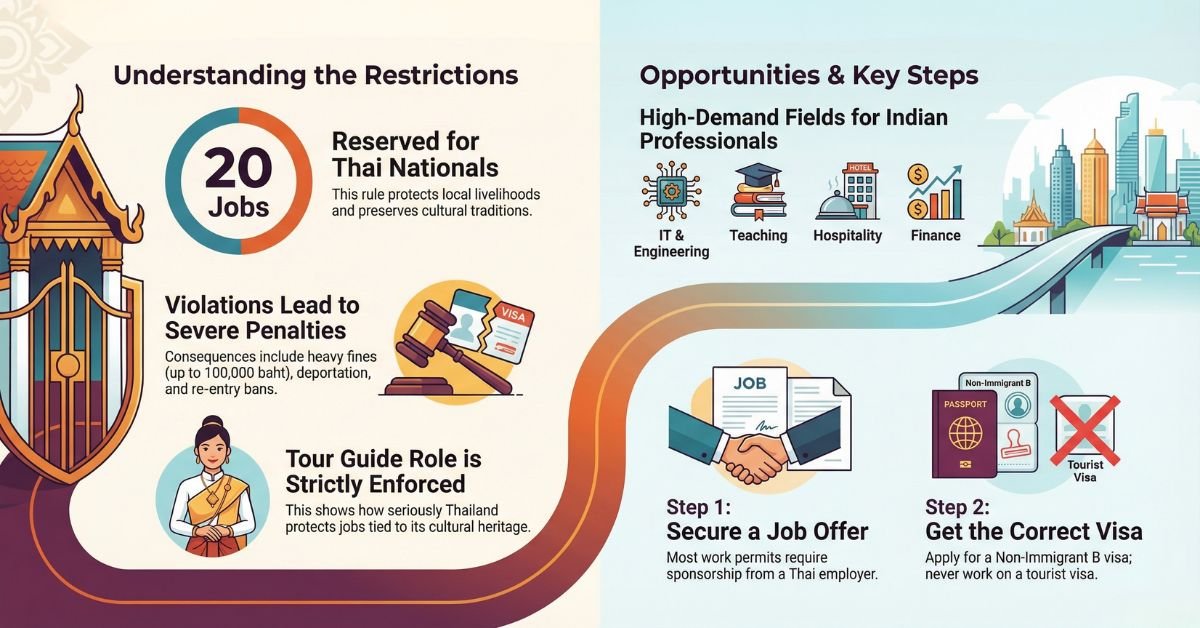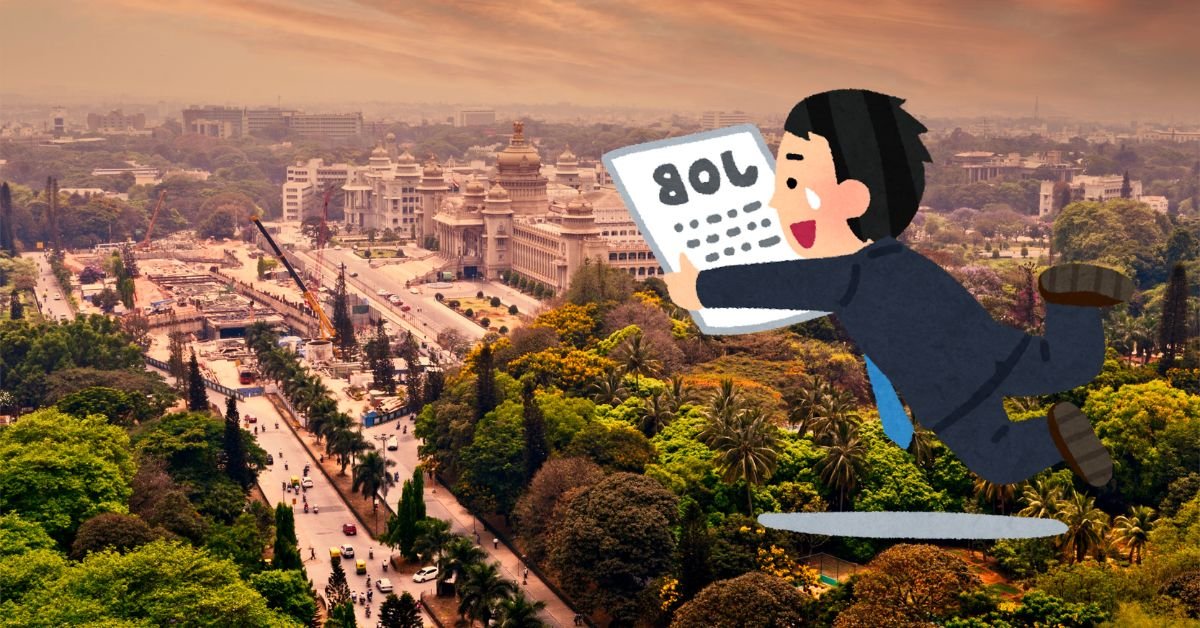Which Indian city is best for remote working? Compare Bangalore, Goa, and Mumbai for internet, costs, and lifestyle to find your perfect hub!
Table Of Contents
Introduction

Close your eyes and picture your ideal workday: maybe you are coding in a sleek co-working space, drafting proposals by the beach, or crushing deadlines in a bustling city.
Thanks to the remote work revolution, you can make that vision a reality, and India’s vibrant cities are ready to host you.
However, here is the million-dollar question: Which Indian city is best for remote working?
Is it Bangalore, the tech titan?
Goa, the nomad’s paradise?
Or Mumbai, the urban powerhouse?
In this ultimate guide, we will compare these cities across five key factors: internet connectivity, cost of living, co-working spaces, quality of life, and community presence.
These factors will help you pick the perfect spot.
Grab a coffee, and let’s explore!
The Rise Of Remote Work In India
Remote work is not just a trend.
It is a lifestyle.
Recent data shows that 12.7% of full-time employees work from home, while 28.2% embrace hybrid models.
India, with its mix of modern infrastructure, cultural depth, and affordability, is a magnet for remote workers.
From tech hubs to coastal retreats, the country offers cities that cater to every kind of professional.
Whether you need lightning-fast Wi-Fi or a budget-friendly base, we are here to answer the question: Which Indian city is best for remote working?
How We Chose The Winners
To crown the top city, we evaluated five must-have factors for remote workers:
- Internet Connectivity: Reliable, high-speed internet is the lifeline of remote work, powering everything from video calls to cloud collaboration.
- Cost of Living: Your budget shapes your lifestyle. We will break down rent, groceries, utilities, and transport costs.
- Co-working Spaces: Dedicated workspaces boost focus and networking. We will check availability, costs, and vibes.
- Quality of Life: Climate, safety, recreation, and livability make or break your daily experience.
- Community Presence: A supportive network of professionals or nomads fuels collaboration and connection.
Let us examine the top contenders, Bangalore, Goa, and Mumbai, followed by a nod to other gems like Pune, Chennai, and Jaipur.
The Top Contenders: City Breakdown
Bangalore: The Tech Titan
Bangalore, or Bengaluru, is India’s tech heartbeat, often dubbed the “Silicon Valley of India.”
If you thrive in a dynamic, innovation-driven environment, this city is your match.
Internet Connectivity
Bangalore’s internet is a powerhouse.
As of mid-2025, providers like Hathway offer fixed broadband speeds averaging 70 Mbps, with ACT Fibernet hitting up to 1 Gbps.
Mobile 5G speeds, averaging 180 Mbps nationally, likely soar higher in Bangalore’s tech corridors.
Whether you are streaming webinars or uploading hefty files, connectivity here is rock-solid.
Cost Of Living
Bangalore strikes a balance between affordability and metro living.
Singles can expect monthly expenses of ₹25,000–₹35,000, including rent for a 1-bedroom apartment in the city center (around ₹26,000).
Families of four might spend ₹60,000–₹90,000, with 3-bedroom rents averaging ₹72,000.
Here is the breakdown:
- Rent: ₹7,000–₹14,000 (1 BHK for singles), ₹15,000–₹32,000 (2–3 BHK for families)
- Groceries: ₹3,000–₹5,500 (singles), ₹8,000–₹16,000 (families)
- Utilities: ₹1,200–₹2,800 (singles), ₹2,000–₹3,500 (families)
- Transport: ₹1,500–₹2,200 (singles), ₹5,000–₹7,500 (families). Budget-friendly areas like Yelahanka or Electronic City keep costs manageable.
Co-Working Spaces
Bangalore is a co-working haven.
Spaces like WeWork, BHIVE, and myHQ offer hot desks starting at ₹200/day and monthly memberships of around ₹8,500.
Located in vibrant hubs like Koramangala and Indiranagar, these spots provide blazing Wi-Fi, meeting rooms, and networking events.
It is a freelancer’s playground and a startup founder’s dream.
Quality Of Life
Bangalore’s climate is a delight, with temperatures hovering around 20–30°C year-round.
Safe neighborhoods like Whitefield and Indiranagar buzz with cafes, parks, and cultural festivals.
From tech meetups to live concerts, there is always something to spark your creativity.
Bangalore’s top ranking in the 2021 Ease of Living Index still holds, making it a livable, lively city.
Community Presence
Hosting over 67% of India’s IT companies, Bangalore is a networking goldmine.
Hackathons, startup pitch nights, and tech conferences are weekly affairs.
With global players like Google and Amazon in town, you will find endless opportunities to connect with driven professionals.
Goa: The Nomad’s Paradise
Goa’s sun-kissed beaches, chilled vibes, and affordable lifestyle make it a magnet for digital nomads.
If you want work to feel like a permanent workstation, Goa’s your spot.
Internet Connectivity
Goa’s internet is solid but does not match Bangalore’s firepower.
Providers like DNA Goa and Ethernet Xpress deliver speeds up to 150 Mbps, with fixed broadband averaging 50–100 Mbps in areas like Panjim and Anjuna.
Rural spots may falter, so stick to urban hubs for reliable Zoom calls and uploads.
It is good enough for most remote tasks, but not ideal for data-heavy workflows.
Cost Of Living
Goa is a budget traveler’s dream.
Singles can live well on ₹15,000–₹25,000, including rent for a 1 BHK (₹5,000–₹15,000 in places like Porvorim or Bambolim).
Families might spend ₹40,000–₹60,000, with 2 BHK rents ranging from ₹10,000 to ₹40,000.
Here is the scoop:
- Rent: ₹5,000–₹7,500 (singles), ₹15,000–₹40,000 (families)
- Groceries: ₹2,000–₹4,500 (singles), ₹10,000–₹20,000 (families)
- Utilities: ₹1,000–₹2,200 (singles), ₹8,000–₹10,500 (families)
- Transport: ₹500–₹8,000 (singles), ₹7,000–₹10,000 (families). Local markets and cheap eats, like fresh seafood, keep your wallet happy.
Co-Working Spaces
Goa’s co-working scene is smaller but thriving.
NomadGao and 91Springboard in Panjim and Anjuna offer day passes (₹250) and monthly plans (₹5,000–₹10,000).
These spaces blend productivity with leisure, often featuring ocean views or yoga sessions.
While not as abundant as Bangalore’s, they are perfect for nomads seeking inspiration.
Quality Of Life
Goa’s beaches, nightlife, and cultural richness are unbeatable.
Areas like Calangute and Dona Paula mix relaxation with entertainment, while the state’s safety and expat-friendly vibe welcome all.
From Portuguese heritage to vibrant festivals, Goa’s charm keeps you hooked.
Community Presence
Goa’s digital nomad community is booming.
Spaces like NomadGao host networking events, yoga retreats, and co-working meetups, fostering a tight-knit vibe.
The mix of locals, expats, and nomads creates a warm, collaborative scene.
Mumbai: The Urban Powerhouse
Mumbai, India’s financial and entertainment capital, is a high-energy hub for remote workers who love the city grind.
Internet Connectivity
Mumbai leads with India’s fastest internet.
Airtel and Excitel offer plans up to 1 Gbps, with average download speeds of 60–80 Mbps.
The city’s cutting-edge infrastructure ensures you are always connected, whether you are on a global call or streaming 4K tutorials.
Cost Of Living
Mumbai comes with a hefty price tag.
Singles face monthly costs of ₹40,000–₹60,000, including rent for a 1-bedroom apartment (₹20,000–₹40,000).
Families might spend ₹80,000–₹1,50,000, with 2–3 BHK rents averaging ₹50,000–₹100,000.
Here is the breakdown:
- Rent: ₹9,000–₹40,000 (PG or 1 BHK for singles), ₹50,000–₹100,000 (families)
- Groceries: ₹4,000–₹6,500 (singles), ₹15,000–₹25,000 (families)
- Utilities: ₹2,000–₹4,200 (singles), ₹5,000–₹10,000 (families)
- Transport: ₹1,500–₹3,200 (singles), ₹7,000–₹15,000 (families). Affordable local trains and buses help balance the budget.
Co-Working Spaces
Mumbai’s co-working scene is world-class, with WeWork, Awfis, and local providers in Bandra and Andheri.
Monthly memberships start at ₹10,000, with day passes around ₹500.
These spaces offer pro-grade Wi-Fi and amenities, catering to everyone from freelancers to corporate teams.
Quality Of Life
Mumbai’s cosmopolitan pulse is electric, with Bollywood, diverse cuisines, and landmarks like Marine Drive.
Safe in populated areas, it is a cultural hotspot, though traffic and crowds can overwhelm.
The nightlife and events keep you energized.
Community Presence
Mumbai’s professional networks span startups, finance, and creative fields.
Co-working spaces and industry events make networking effortless, perfect for ambitious remote workers.
Comparison: Bangalore vs. Goa vs. Mumbai
| Factor | Bangalore | Goa | Mumbai |
|---|---|---|---|
| Internet Speed | High (70–100 Mbps, up to 1 Gbps) | Moderate (50–150 Mbps) | Very high (60–80 Mbps, up to 1 Gbps) |
| Cost of Living (Single) | ₹25,000–₹35,000 | ₹15,000–₹25,000 | ₹40,000–₹60,000 |
| Cost of Living (Family) | ₹60,000–₹90,000 | ₹40,000–₹60,000 | ₹80,000–₹1,50,000 |
| Co-working Spaces | Abundant (WeWork, BHIVE, myHQ) | Growing (NomadGao, 91 Springboard) | Abundant (WeWork, Awfis) |
| Quality of Life | Pleasant weather, tech hub, vibrant | Beaches, relaxed, cultural charm | Fast-paced, cosmopolitan, crowded |
| Community | Strong tech and startup ecosystem | Growing digital nomad community | Diverse professional networks |
Honorable Mentions: Other Cities To Explore
Bangalore, Goa, and Mumbai are tough to beat, but other cities shine for specific needs:
- Pune offers internet speeds up to 1 Gbps and costs ₹20,000–₹30,000 for singles. Its green hills and tech scene make it a balanced pick.
- Chennai: Boasts high broadband speeds (65–70 Mbps) and costs similar to Bangalore (₹25,000–₹35,000 for singles). Its coastal vibe and culture are a draw.
- Jaipur: It is budget-friendly (₹15,000–₹25,000 for singles), but limited co-working spaces and moderate speeds (50–100 Mbps) suit creative or less tech-intensive work.
Detailed Comparison: Additional Cities
| City | Internet Speed | Cost Of Living (Single) | Cost Of Living (Family) | Co-working Spaces | Quality Of Life | Community |
|---|---|---|---|---|---|---|
| Pune | High (70–100 Mbps, up to 1 Gbps) | ₹20,000–₹30,000 | ₹50,000–₹80,000 | Good (Innov8, WeWork) | Scenic, balanced lifestyle | Growing tech community |
| Chennai | High (65–70 Mbps) | ₹25,000–₹35,000 | ₹60,000–₹90,000 | Available (Workafella) | Coastal, cultural hub | Moderate, tech-focused |
| Jaipur | Moderate (50–100 Mbps) | ₹15,000–₹25,000 | ₹40,000–₹60,000 | Limited (Jaipur Hub) | Heritage, cultural vibe | Small, creative community |
Which City Fits You Best?
So, which Indian city reigns supreme for remote working?
It is all about what you value:
- Bangalore is ideal for techies and startup lovers. It offers a tech-charged environment with stellar internet, endless co-working options, and a buzzing professional community.
- Choose Goa for affordability and a relaxed, beachy lifestyle. Its growing nomad community and budget-friendly costs make work feel like a vacation.
- Opt for Mumbai if you love a fast-paced, cosmopolitan vibe with top-notch internet and diverse networking. Perfect for career-driven pros who can handle higher costs.
Still unsure?
Pune offers a tech-nature balance, Chennai blends coastal charm with connectivity, and Jaipur delivers a cultural, budget-friendly experience.
Pro Tips For Remote Working In India
Wherever you land, these tips will set you up for success:
- Check Internet First: Test Wi-Fi speeds before signing a lease, and keep a mobile hotspot as a backup.
- Try Co-working Spaces: Sample day passes to find your perfect workspace, whether it is professional or laid-back.
- Embrace the Vibe: To balance work and play, dive into Bangalore’s tech events, Goa’s beach sunsets, or Mumbai’s nightlife.
- Build Connections: Join local meetups or online groups, especially in Goa’s nomad hubs or Bangalore’s startup scene.
Conclusion
The quest to find which Indian city will be the most popular for remote working in 2025 depends on your unique needs.
Bangalore takes the crown for its tech prowess, reliable connectivity, and vibrant community, making it a haven for productivity.
Goa steals hearts with its affordable, chilled-out lifestyle, ideal for nomads seeking balance.
Mumbai shines for its unmatched internet and urban buzz, perfect for those who thrive on energy.
Wherever you choose, India’s diversity guarantees a city that sparks your remote work journey.
Hungry for more tips on remote work or lifestyle?
Swing by THOUSIF Inc. – INDIA’s blog, and drop your thoughts in the comments!
Trivia
Did you know Bangalore’s tech boom started in the 1980s, when companies like Infosys set up shop, transforming it into India’s Silicon Valley? Today, it is a global IT powerhouse!










